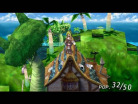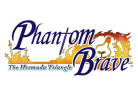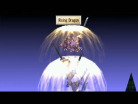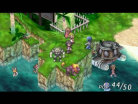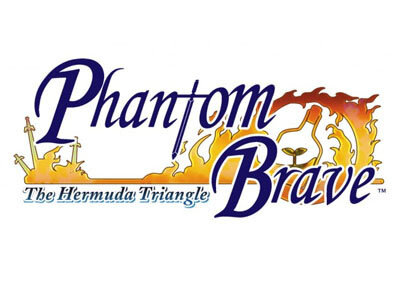- CLASSIC MAGAZINES
- REVIEW CREW
A show recapping what critics thought back
when classic games first came out! - NEXT GENERATION'S BEST & WORST
From the worst 1-star reviews to the best
5-stars can offer, this is Next Generation! - NINTENDO POWER (ARCHIVE)
Experience a variety of shows looking at the
often baffling history of Nintendo Power! - MAGAZINE RETROSPECTIVE
We're looking at the absolutely true history of
some of the most iconic game magazines ever! - SUPER PLAY'S TOP 600
The longest and most ambitious Super NES
countdown on the internet! - THEY SAID WHAT?
Debunking predictions and gossip found
in classic video game magazines! - NEXT GENERATION UNCOVERED
Cyril is back in this spin-off series, featuring the
cover critic review the art of Next Generation! - HARDCORE GAMER MAGAZING (PDF ISSUES)
Download all 36 issues of Hardcore Gamer
Magazine and relive the fun in PDF form!
- REVIEW CREW
- ELECTRONIC GAMING MONTHLY
- ELECTRONIC GAMING MONTHLY RANKS
From Mario to Sonic to Street Fighter, EGM
ranks classic game franchises and consoles! - ELECTRONIC GAMING MONTHLY BEST & WORST
Counting down EGM’s best and worst reviews
going year by year, from 1989 – 2009! - ELECTRONIC GAMING BEST & WORST AWARDS
11-part video series chronicling the ups and
downs of EGM’s Best & Worst Awards!
- ELECTRONIC GAMING MONTHLY RANKS
- GAME HISTORY
- GAME OVER: STORY BREAKDOWNS
Long-running series breaking down game
stories and analyzing their endings! - A BRIEF HISTORY OF GAMING w/ [NAME HERE]
Real history presented in a fun and pithy
format from a variety of game historians! - THE BLACK SHEEP
A series looking back at the black sheep
entries in popular game franchises! - INSTANT EXPERT
Everything you could possibly want to know
about a wide variety of gaming topics! - FREEZE FRAME
When something familiar happens in the games
industry, we're there to take a picture! - I'VE GOT YOUR NUMBER
Learn real video game history through a series
of number-themed episodes, starting at zero! - GREAT MOMENTS IN BAD ACTING
A joyous celebration of some of gaming's
absolute worst voice acting!
- GAME OVER: STORY BREAKDOWNS
- POPULAR SHOWS
- DG NEWS w/ LORNE RISELEY
Newsman Lorne Riseley hosts a regular
series looking at the hottest gaming news! - REVIEW REWIND
Cyril replays a game he reviewed 10+ years
ago to see if he got it right or wrong! - ON-RUNNING FEUDS
Defunct Games' longest-running show, with
editorials, observations and other fun oddities! - DEFUNCT GAMES QUIZ (ARCHIVE)
From online quizzes to game shows, we're
putting your video game knowledge to the test!- QUIZ: ONLINE PASS
Take a weekly quiz to see how well you know
the news and current gaming events! - QUIZ: KNOW THE GAME
One-on-one quiz show where contestants
find out if they actually know classic games! - QUIZ: THE LEADERBOARD
Can you guess the game based on the classic
review? Find out with The Leaderboard!
- QUIZ: ONLINE PASS
- DEFUNCT GAMES VS.
Cyril and the Defunct Games staff isn't afraid
to choose their favorite games and more! - CYRIL READS WORLDS OF POWER
Defunct Games recreates classic game
novelizations through the audio book format!
- DG NEWS w/ LORNE RISELEY
- COMEDY
- GAME EXPECTANCY
How long will your favorite hero live? We crunch
the numbers in this series about dying! - VIDEO GAME ADVICE
Famous game characters answer real personal
advice questions with a humorous slant! - FAKE GAMES: GUERILLA SCRAPBOOK
A long-running series about fake games and
the people who love them (covers included)! - WORST GAME EVER
A contest that attempts to create the worst
video game ever made, complete with covers! - LEVEL 1 STORIES
Literature based on the first stages of some
of your favorite classic video games! - THE COVER CRITIC
One of Defunct Games' earliest shows, Cover
Critic digs up some of the worst box art ever! - COMMERCIAL BREAK
Take a trip through some of the best and
worst video game advertisements of all time! - COMIC BOOK MODS
You've never seen comics like this before.
A curious mix of rewritten video game comics!
- GAME EXPECTANCY
- SERIES ARCHIVE
- NINTENDO SWITCH ONLINE ARCHIVE
A regularly-updated list of every Nintendo
Switch Online release, plus links to review! - PLAYSTATION PLUS CLASSIC ARCHIVE
A comprehensive list of every PlayStation
Plus classic release, including links! - RETRO-BIT PUBLISHING ARCHIVE
A regularly-updated list of every Retro-Bit
game released! - REVIEW MARATHONS w/ ADAM WALLACE
Join critic Adam Wallace as he takes us on a
classic review marathon with different themes!- DEFUNCT GAMES GOLF CLUB
Adam Wallace takes to the links to slice his way
through 72 classic golf game reviews! - 007 IN PIXELS
Adam Wallace takes on the world's greatest spy
as he reviews 15 weeks of James Bond games! - A SALUTE TO VAMPIRES
Adam Wallace is sinking his teeth into a series
covering Castlevania, BloodRayne and more! - CAPCOM'S CURSE
Adam Wallace is celebrating 13 days of Halloween
with a line-up of Capcom's scariest games! - THE FALL OF SUPERMAN
Adam Wallace is a man of steel for playing
some of the absolute worst Superman games! - THE 31 GAMES OF HALLOWEEN
Adam Wallace spends every day of October afraid
as he reviews some of the scariest games ever! - 12 WEEKS OF STAR TREK
Adam Wallace boldly goes where no critic has
gone before in this Star Trek marathon!
- DEFUNCT GAMES GOLF CLUB
- DAYS OF CHRISTMAS (ARCHIVE)
Annual holiday series with themed-episodes
that date all the way back to 2001!- 2015: 30 Ridiculous Retro Rumors
- 2014: 29 Magazines of Christmas
- 2013: 29 Questionable Power-Ups of Christmas
- 2012: 34 Theme Songs of Christmas
- 2011: 32 Game Endings of Christmas
- 2010: 31 Bonus Levels of Christmas
- 2009: 30 Genres of Christmas
- 2008: 29 Controls of Christmas
- 2007: 34 Cliches of Christmas
- 2006: 33 Consoles of Christmas
- 2005: 32 Articles of Christmas
- 2004: 31 Websites of Christmas
- 2003: 29 Issues of Christmas
- 2002: 28 Years of Christmas
- 2001: 33 Days of Christmas
- NINTENDO SWITCH ONLINE ARCHIVE
- REVIEW ARCHIVE
- FULL ARCHIVE
Phantom Brave: The Hermuda Triangle
Believe it or not, The Hermuda Triangle is the third (and final?) update to Nippon Ichi Software's Phantom Brave adventure. The original game was released seven years ago on the PlayStation 2, followed up by a well-intentioned Wii update a few years later. Now comes the PSP port, which lands with a low price point and some added content. Even after all these years, Phantom Brave remains an engaging adventure game worth suiting up for ... assuming you haven't played it before.
Phantom Brave tells the story of Marona, a young girl with a dark secret. Don't be fooled by her upbeat exterior, this unlikely hero has become an outcast amongst her own people. It turns out that her neighbors may have good reason to be worried, seeing as she is possessed and able to see invisible spirits. Marona travels around with her mostly invisible guardian named Ash; together the two make money by taking on quests and fixing problems.
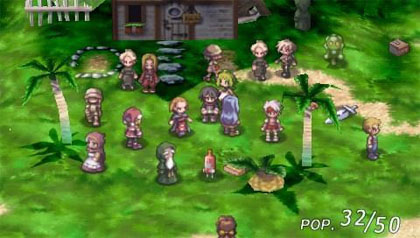
It turns out that Marona can summon phantoms that are really good at clearing out unwelcome monsters. Unfortunately this power comes with a twist -- she must "confine" these spirits into inanimate objects. I'm talking about trees, weapons, rocks and anything else that isn't trying to kill Marona. These various objects have their own properties, something that will impact the character you summon. These phantoms will leap into the real world and take on the foes. But don't get too comfortable, because these summoned fighters will only stick around for a few rounds. Once they're gone it's up to the lone mortal to finish the fight.
Confining characters to objects is an interesting way of twisting the generally straight-laced strategy RPG genre. This is not one of those games where players can simply load the level with strong fighters from the start, when and where you summon your allies is vital to winning. This is the type of game where you may want to hold off on bringing in your best characters, saving them to be your all-important closer. Even though it's a little confusing at first, I came away impressed with the changes Phantom Brave made to the genre.
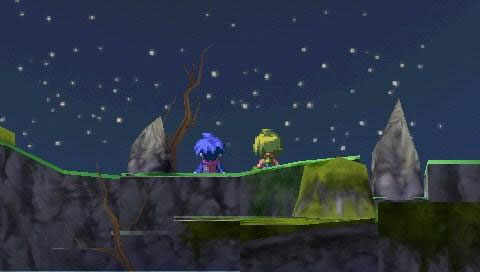
Outside of confining characters to rocks, The Hermuda Triangle feels a lot like many other turn-based adventure games from Japan. Although the game isn't laid out like a chess board, players are still told how far they can walk and what they can do. Each turn is about moving the character into place and either attacking or using items on fellow teammates. Anybody familiar with Final Fantasy Tactics or Tactics Ogre will feel at home with Phantom Brave.
I was surprised at how shallow the combat engine was compared to other NIS America games I've played. With the colorful graphics, whimsical heroine and dumbed down combat, I get the feeling that Phantom Brave was intended for a younger audience. I don't say that pejoratively, there's a place for the so-called "starter" adventure game. It's important to work up to something like Aedis Eclipse: Generations of Chaos.
On the other hand, if this is made for younger players, then why is it so difficult? The game seems simple enough at first, but it won't take long before you find yourself outclassed for the next challenge. This means that you'll need to replay a few earlier missions, which halts the flow of the game entirely. Grinding in role-playing games is nothing new, but it's especially annoying when you have to do it early in the game. And don't even get me started on what this constant backtracking does to the game's pacing. All this definitely feels out of step with the otherwise cutesy visuals.
Even with the trial and error levels, I was won over by the game's simple charm. After playing through some truly heavy adventure games recently, I was up for something fat-free like Phantom Brave. There's something very economical about this game, from the way you live on a house to how everybody that lives on your tiny island is also ready to help you fight monsters. The truth is, I really like island living. I like how I don't need to search around for the shopkeeper. If I want to sit and read letters, I'm free to do that. Phantom Brave is a very relaxing game ... at least until the monsters show up.
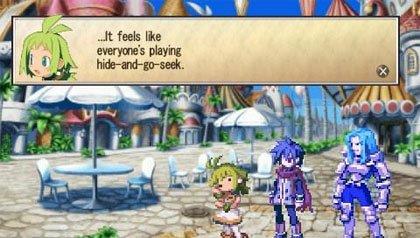
No matter how much I like hanging out on the beach, I can't help but be reminded that this is a seven year old PlayStation 2 game. The game does offer new content and playable characters, but it's not enough to buy this game all over again. Thankfully the graphics still hold up, especially on the PSP's widescreen display. The user interface is also good, even if they are on the simple side.
Then again, if you're somebody who missed the game on both the PlayStation 2 and the Wii, then Phantom Brave is a steal for twenty dollars. The game packs enough content to keep players going for weeks to come, longer if you dig into the exclusive PSP content. Best of all, the game offers a sense of whimsy that you don't normally get from modern-day adventure games. It's nice to see this kind of game find new life on a platform known for quality role-playing games.
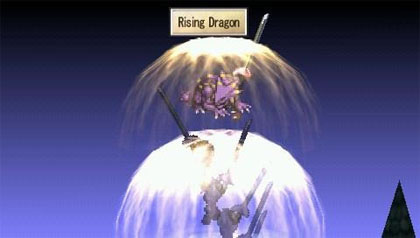
The problem with Phantom Brave is that it will be ultimately overshadowed by newer (and better) games. Had this been released early in the PSP's lifecycle I would have been tempted to give it a recommendation, however now this seven year old RPG is forced to compete with the likes of Kingdom Hearts, Ys Seven, Persona 3 Portable, Valkyria Chronicles II and countless other recent releases. Phantom Brave isn't at the same level, which ultimately makes it hard to be enthusiastic about the release. The low price softens the blow, but this NIS America release is not the slam-dunk it was a half dozen years ago.
HOME |
CONTACT |
NOW HIRING |
WHAT IS DEFUNCT GAMES? |
NINTENDO SWITCH ONLINE |
RETRO-BIT PUBLISHING
Retro-Bit |
Switch Planet |
The Halcyon Show |
Same Name, Different Game |
Dragnix |
Press the Buttons
Game Zone Online | Hardcore Gamer | The Dreamcast Junkyard | Video Game Blogger
Dr Strife | Games For Lunch | Mondo Cool Cast | Boxed Pixels | Sega CD Universe | Gaming Trend
Game Zone Online | Hardcore Gamer | The Dreamcast Junkyard | Video Game Blogger
Dr Strife | Games For Lunch | Mondo Cool Cast | Boxed Pixels | Sega CD Universe | Gaming Trend
Copyright © 2001-2025 Defunct Games
All rights reserved. All trademarks are properties of their respective owners.
All rights reserved. All trademarks are properties of their respective owners.






